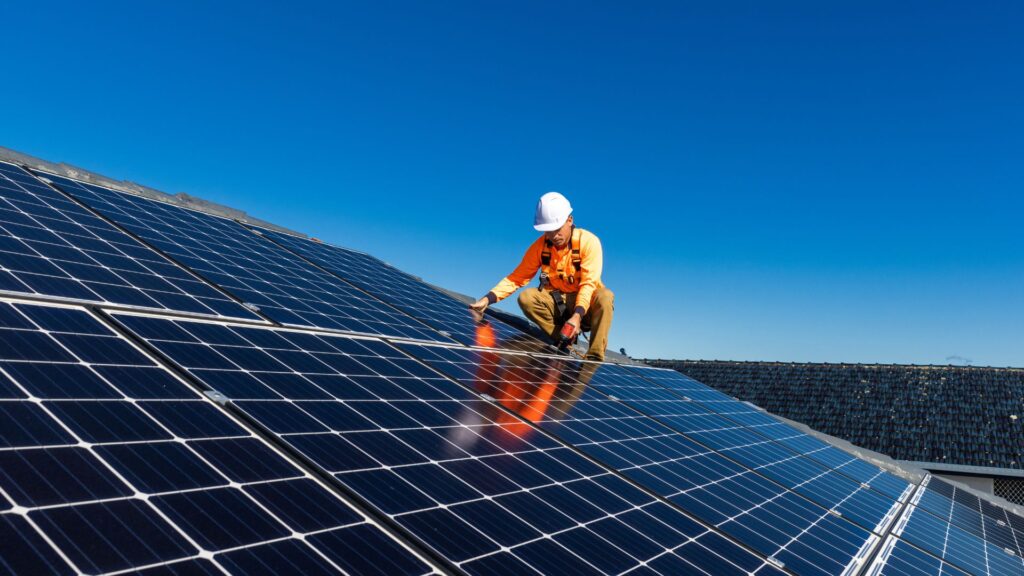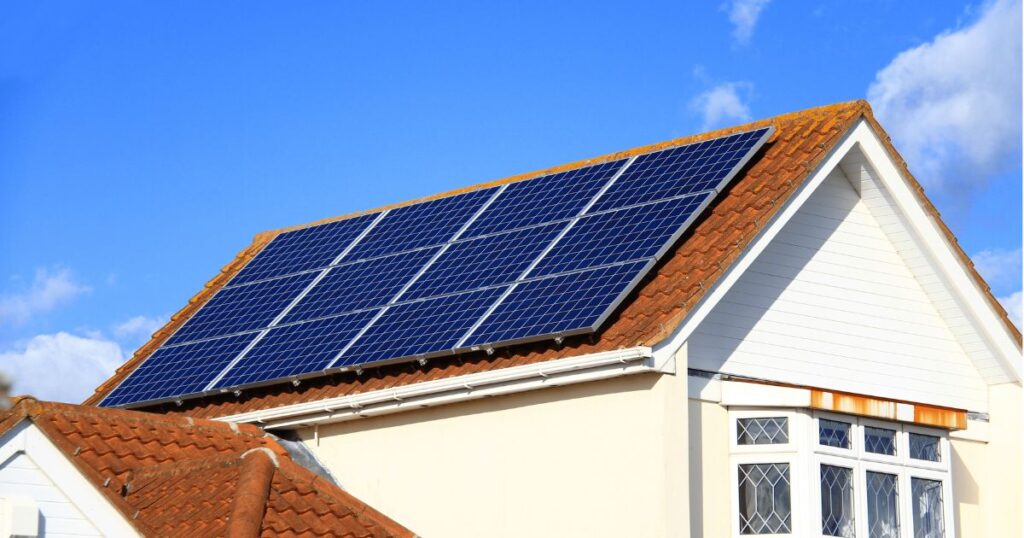
Ever wondered how solar panels work, so you can decide if you want solar panels for your home here is a guide on how they work
In this guide, we will cover
- What are solar panels made out of
- How do solar panels convert sunlight to electricity
- How do solar panels convert DC to AC
- How do solar panels work with batteries?
- Do solar panels work on cloudy days?
- Do solar panels work on flat roofs
- Does it need to be hot for solar panels to work?
- Who can install solar panels?
What are solar panels made out of?
Solar panels are made up of photovoltaic (PV) cells which are typically made out of materials like silicon as it’s a semiconductor.
A semiconductor is a material that has a conductivity between a conductor e.g. copper and an insulator e.g. glass
Another reason why silicon is used in the making of PV cells is that it has a high conversion efficiency and also it is the 2nd most abundant element after oxygen meaning that the cost of solar panels can be kept down.
How do solar panels convert sunlight into electricity?

When sunlight reaches the photovoltaic (PV) cells on a solar panel, the photons (positive charges) from the sunlight transfer their energy to the electrons inside the PV cell. This energy allows the electrons to break free, a process known as the photoelectric effect. Once the electrons break free, they become mobile and can move around. These electrons move randomly in the PV cell, and when they hit other atoms or molecules, they transfer their kinetic energy to them. When enough electrons move in the same direction, they create a flow of electricity, which is known as an electric current.
This flow of electricity is a direct current (DC), which can be used to power electronic devices or stored in batteries for later use. The amount of electricity produced by a solar panel depends on various factors such as the amount of sunlight it receives, the angle of the panel, and the efficiency of the PV cells. However, all solar panels work on the same principle of converting sunlight into electricity, using the photoelectric effect.
How do solar panels convert DC to AC?
Most of our devices nowadays use alternating current (AC) as opposed to direct current (DC).
This is where an inverter is useful.
An inverter takes the DC current from the solar panel and produces an AC current which can be used to charge and run as many devices as you desire.
How do solar panels work with batteries?
With solar you use the electricity as it’s generated , but a battery allows you to store the excess electricity produced to use later on.
There are many different types of batteries for solar generally a home will require between a 10kWh and 20kWh battery.
We find many homeowners go without a battery as they can use the grid if they need to top on electricity but if you are determined to be self reliant a battery is recommended.
Do solar panels work on cloudy days?
Solar panels do still work on cloudy days this is because they are still exposed to sunlight although cloud cover does reduce the efficiency of solar panels as they get less sunlight, this is why solar preforms better in the summer compared to the winter.
Do solar panels work on flat roofs
For solar panels to absorb the most sunlight they should be angled so if you have a flat roof you will need mounting rig to place the solar panel at an angle of 30-40 degrees.
Does it need to be hot for solar panels to work?
Although we commonly associate heat and sunlight together its not the case for solar, solar panels need sunlight to generate electricity and heat actually has an adverse effect and every degree higher than 25°C reduces the solar panels efficiency by 0.3% to 0.5%
Who can install solar panels?
Legally anyone can install solar panels however this isn’t recommended for insurance, SEG and planning reasons. An MCS accredited installer is recommended as MCS maintains standards relating to low-carbon products, installers and installations.
Abbey Renewables is an MCS accredited installers based in Swindon but servings across the south west, we have been installing solar for a number of years for a range of clients.
Contact Us for more info

